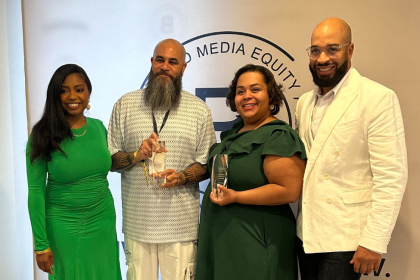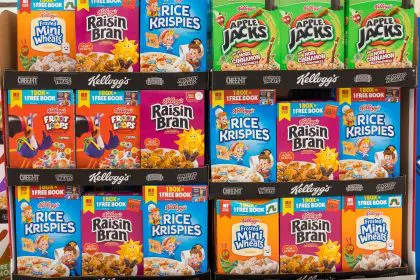Charles “Champ” Walker wants to bring industry-shifting change to Black economics. The Black businessman has introduced the Black Wall Street Ticker. Ahead of the public launch of the Ticker on March 12 at the Russell Innovation Center for Entrepreneurs in Atlanta, Walker discussed the move and its potential implications on Black economics.
What exactly is the Ticker?
We’re here to talk about our company, FOTM, Friends of the Movement Global social data analytics company, in an unveiling of the first Black Wall Street Ticker to track spending in the Black community and report and hold corporations accountable for the first time.
Where did this idea come from?
When I was in college, I worked at a family newspaper. I had to get busy early on because I had a child at 18. I was focused. I worked with our newspaper, directory of faith-based entities, as well as merchants. I realized we didn’t have a lot of Black businesses, and they couldn’t spend money [on] advertising. So, I came up with a concept called YEA, Young Entrepreneurs and Associates. We had college interns on several different campuses. We advertised one phone number to get in touch with any Black business, [and we have over] 150 different products and services.
We paid these student interns [commissions for referring businesses], plus they learned that particular industry category. We actually created a referral service, which is one of the first directories by phone. Quickly, we found out some of the merchants were not paying. My first job was a couple of $1,000 off a referral. So we had problems tracking the money. For the last 30-40 years, we’ve been trying to figure out how we can track these referrals because word of mouth is the No. 1 form of advertising.
We’ve figured out a way to monetize word-of-mouth referrals from anybody, but [we] also create more than a directory; [it is] a conscious spending platform where any consumer can shop instantly and find a merchant or cost that aligns with their values. So every time, with every dollar, every day, your dollars are having an impact. We’re starting with Black Wall Street because my passion is to help close the wealth gap. I get tired of people talking about [how] we marched, and we’re voting. There has been a 7,000% increase in Black Business searches after George Floyd. After that, we started looking at the technology, and that’s how we created the conscious-spending platform.
What did you learn while working at your family’s Black-owned newspaper?
[First], I learned our community is undercapitalized tremendously.
[Second, there are] a lot of myths about Black businesses [such as] the White man’s ice is colder than the Blacks.’ [Third], if we did not have Black media outlets, we wouldn’t be able to get out our perspective. It’s so very powerful. What we learned is that even when we wanted to support each other, we didn’t have enough businesses and enough categories.
If you wanted a physicist or computer technician in Atlanta, Memphis, Houston, Chicago, you may find one. In Augusta where I’m from, you may not have a quantum physics expert, so what we’ve learned is our people want to spend. But we believe because of slavery, and what we’ve learned, some of us can be very envious … Just imagine Black Wall Street. They spent with each other, they prospered. We’re inviting allies; they got $5 trillion, and we spent $1.8 trillion. We take half of America as allies. Just imagine $7 trillion being redirected to companies that support your community. It doesn’t make sense to do otherwise.

















